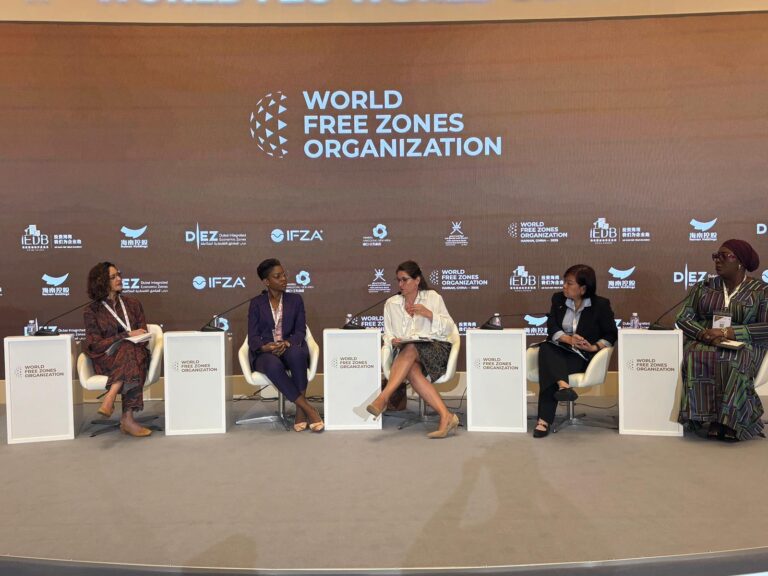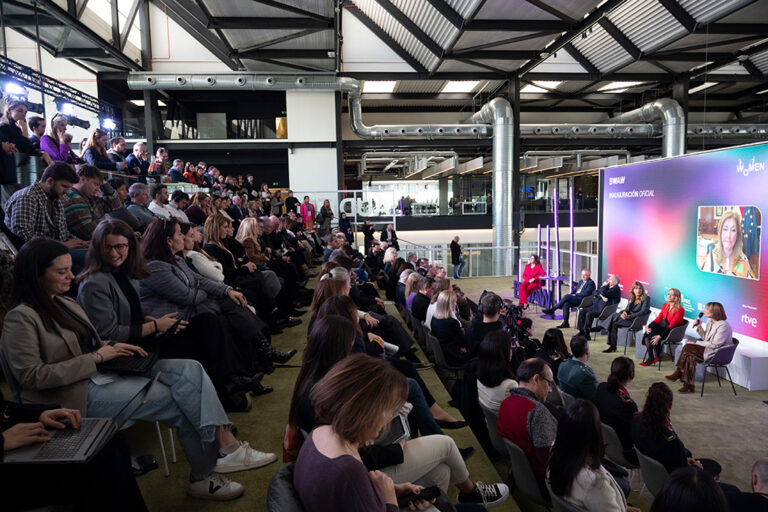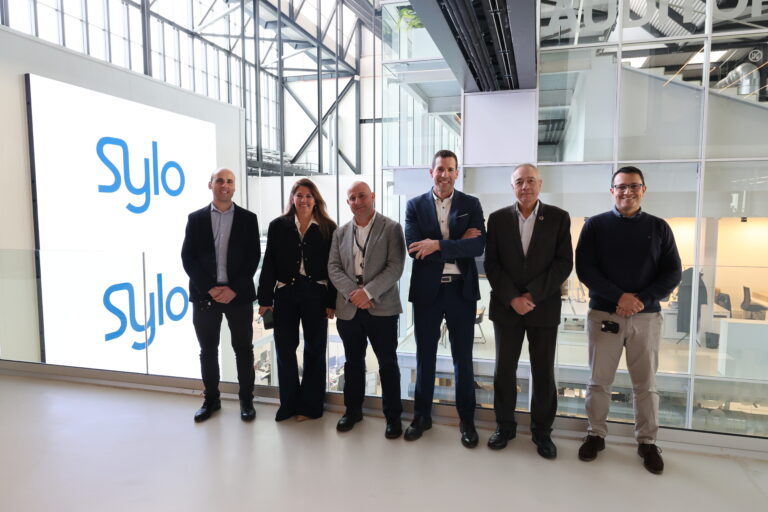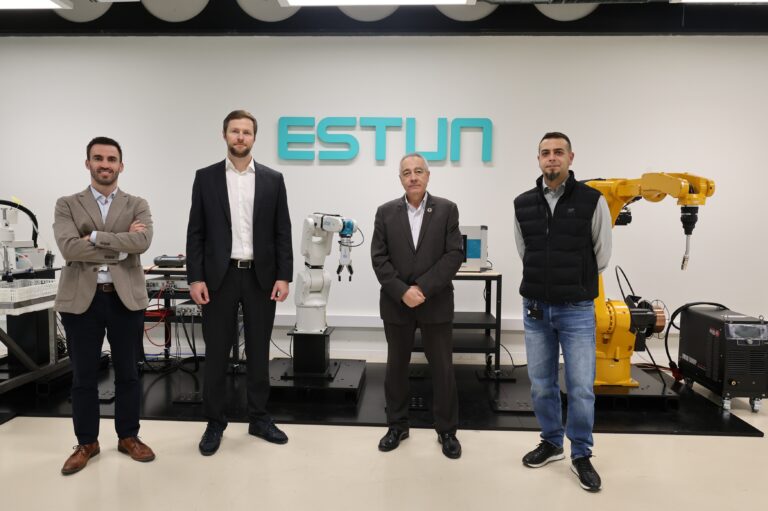Blanca Sorigué, re-elected Vice President of the World Free Zones Association

13 de October de 2025
- The Barcelona Free Zone, presented as District 4.0 leading economic activity related to the digital transformation of industry, once again played a very prominent role.
- The General Director of CZFB, Blanca Sorigué, attended the 11th edition of the World Free Zones Congress, which brought together 2,000 attendees from 160 countries and 114 speakers.
- She held high-level meetings with the President of the China Institute for Reform and Development (CIRD), Chi Fulin, and the Vice Governor of Hainan, Yang Guoqiang.
Barcelona, October 13, 2025.- The Consorci de la Zona Franca de Barcelona (CZFB) had a very prominent participation in the 11th edition of the World Free Zones Congress, organized by the World Free Zones Organization (WFZO) from October 10 to 12 at the Hainan International Conference and Exhibition Center in Haikou (China). As part of this congress, the WFZO General Assembly was also held, serving to renew its governing body. In this context, the General Director of CZFB, Blanca Sorigué, was re-elected as Vice President of the World Free Zones Association, a position she has held since May 2023. Mohamed Alzarooni, meanwhile, will continue as the global president of the association.
The World Free Zones Congress featured a total of 2,000 attendees from 160 countries and brought together leaders of free zones, policymakers, innovators, and partners who are shaping the future of global trade and investment. Over three intense days, a total of 114 speakers highlighted how free zones can expand opportunities, strengthen economic connectivity, and foster a new era of global cooperation.
It was three days of strategic dialogue, global networking, and leadership development, where the emerging role of free zones as platforms for inclusive growth and cooperation was emphasized. In this context, the General Director of CZFB, Blanca Sorigué, presented the entity’s strategic vision to lead the digital transformation of industry through Barcelona’s District 4.0, which is projected globally as the economic activity zone where companies leading Industry 4.0 are present.
Participation in Two Sessions
In a context marked by technological change, the transformation of supply chains, and climate imperatives, zones are emerging as platforms that prioritize resilience, inclusion, and alignment with the United Nations Sustainable Development Agenda. For this reason, the World Free Zones Congress hosted a session dedicated to giving visibility to women leading the free zones sector, in which the General Director of CZFB, Blanca Sorigué, participated alongside the directors of the Free Zones of Port Klang (Malaysia) and JSEZA (Jamaica).
Sorigué, who also participated in a session on collaborative leadership, emphasized that “the World Free Zones Congress has once again provided a space for collaboration, knowledge exchange, and alliance building, equipping key stakeholders with strategies to face challenges, seize opportunities, and position zones as essential drivers of global progress”. The General Director of CZFB added that “in this scenario, we have once again seen how the Barcelona Free Zone model is a benchmark and is admired throughout the sector as a success story to follow, generating opportunities for its territory by creating qualified jobs, manufacturing, attracting, and retaining talent”.
During the World Free Zones Congress, the General Director of CZFB also visited and learned firsthand about the China Institute for Reform and Development (CIRD), a public research center specializing in reform and development policies, acting as an independent think tank with a strong international vocation. Among its main functions are public policy research, government advisory, training and capacity building, as well as international cooperation. Chi Fulin, president of CIRD, welcomed the delegation of the World Free Zones Organization (WFZO).
Blanca Sorigué also held a meeting with the Vice Governor of Hainan, Yang Guoqiang. Hainan is emerging as a strategic industrial benchmark, thanks to its transformation into a Free Trade Port (FTP), with high technology (artificial intelligence, blockchain, biotechnology, semiconductors, and digital economy) as one of the main pillars of its economy.



